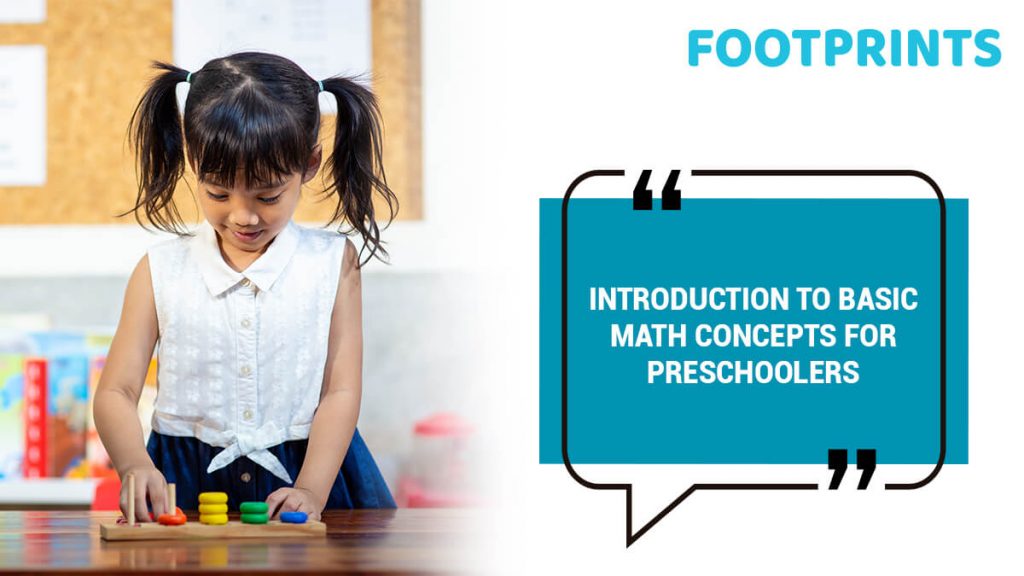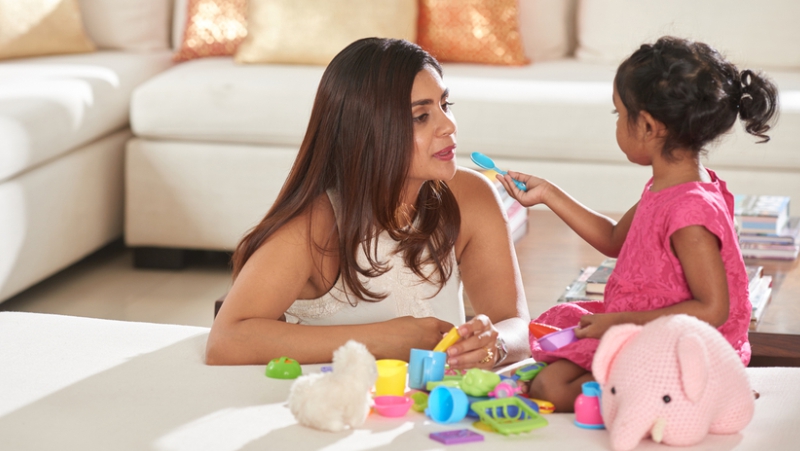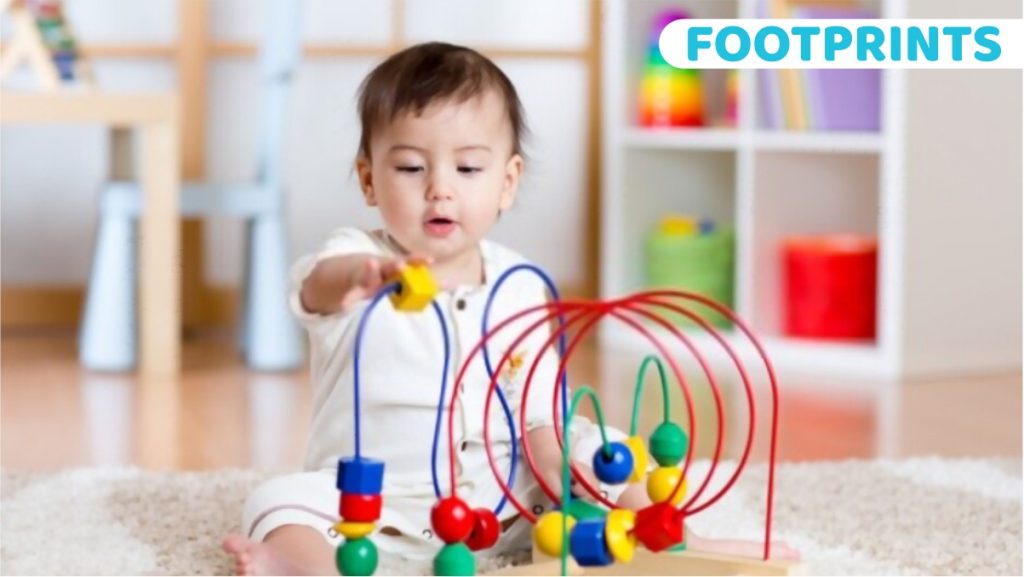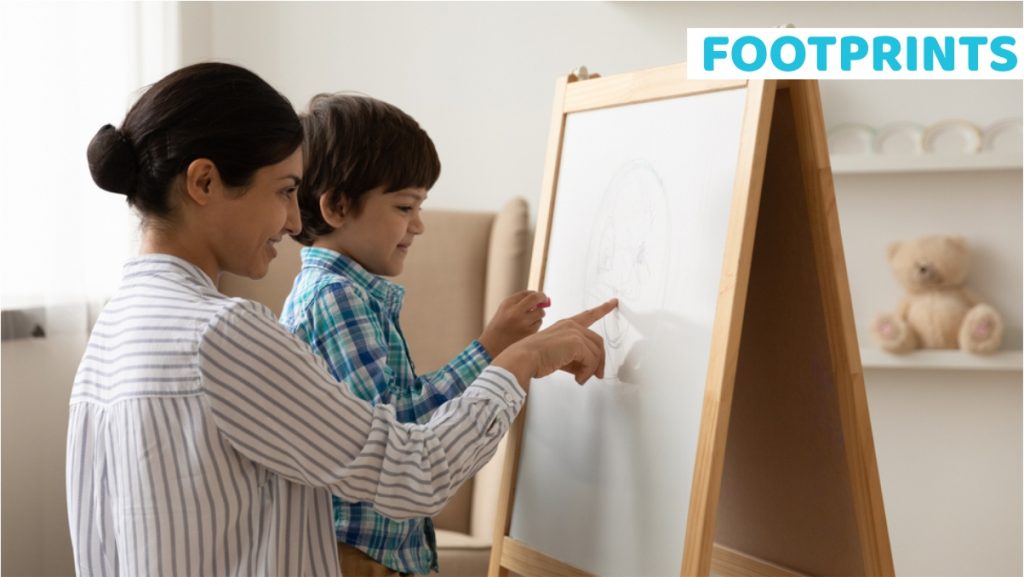

Come to think of it, mathematics is an integral aspect of our lives. From referring to the size of objects to their number & weight to adding & subtracting numbers, knowingly or unknowingly, we tend to do all of this all day. This is why introduction to basic math concepts for preschoolers may not be as hard a task as it sounds. Before we get to some handy tips to introduce these concepts & to make sure that your preschool-going child has fun learning them, it will be worthwhile to understand why it is crucial to build early math skills at the preschool stage:
Why build early math skills at the pre-nursery stage?
Among the numerous benefits of building early math skills are:
- Research shows that developing early math skills supports general cognitive abilities and enhances problem-solving skills
- It helps in improved decision making
- It is also known to enhance reading & language skills
- Research has also shown that it is predictive of later academic success
- It improves overall life outcomes
It is important to understand that basic math concepts aren’t just about numbers & shapes alone. It is more to do with reasoning, logical thinking, and more that are real-life skills. In short, mathematical skills equip the child with a number of life skills and help develop competencies that are of value in later life beyond just academic success.
That said, let us look at the various ways in which you can develop these skills:
1. Build Basic Spatial Skills
To do this, you do not necessarily have to sit with charts or blocks to ensure that the child learns the various shapes. Instead, it will be a good idea to point out these shapes as a part of your daily routine. So you could tell them how the door is a rectangle or that they are eating a round “roti” or that the straw they are sipping from is cylindrical. You could also use cookie cutters to teach them various shapes. That they can devour these shapes will add to the fun! Soon all these shapes will be a part of their lived reality, as opposed to being theoretical concepts.
It is important to remember that children learn by doing. Getting the child to make different shapes with play dough, for example, will cement their learning of shapes. Similarly playing kinesthetic games can be of great benefit. Throwing a ball at each other & learning counting, for example, can help develop basic math concepts. You could also try Origami games or puzzles that improve logical thinking & also help with hand-eye coordination.
2. Counting
Once again, while the traditional idea of teaching counting may revolve around sitting the child down and reciting that 1 to 100, you can ensure that the counting exercise is fun as opposed to being seen as a chore. You could get them to put together beads into a beautiful necklace as they count the beads. Similarly, you could draw up a game around clapping a certain number of times. Counting the steps required to traverse from one room to another- the opportunities to teach counting are endless! You could also make use of interesting rhymes that teach backward counting in the most fun manner.
You could even get them to make heaps of 3 or 4 with the help of their marbles, gems, or more. That you are laying the foundation of teaching multiplication tables without necessarily resorting to rote learning is an added perk!
3. Patterns
Recognizing patterns is an important aspect of understanding data. Go ahead & instill this skill early. It will be fun to play sorting games with them. Arrange objects by size, colour, weight & more! You could even involve them in household tasks such as folding clothes as per their size. Get them to match articles such as plates or spoons & physically classify them.
You could also teach them about parts & whole. A biscuit broken into two equal pieces, for example, could serve as an example of parts adding up to a whole.
4. Measurement
What better way to teach measurement than to get them to help you in the kitchen? Go ahead & ask them to put a glass of rice in the pressure cooker or ask them to lay out 10 pieces of almonds to make that mouth-watering “kheer”. You sure would be honing not just their mathematical skills but also important life skills. Pro tip- Do remember to keep the tasks age appropriate though!
5. Compare & Contrast
The next time you take the child with you to the supermarket, you can teach them interesting lessons in comparing & contrasting. Get them to pick mangoes by size or colour. You could also introduce them to the concepts of liter and milliliter as you pick up those large bottles of cooking oil or smaller bottles of condiments. Teaching the child the concepts of heavier or lighter will also follow through from here.
6. Addition & Subtraction
If you think pre-nursery is too early to teach addition & subtraction, think again! Of course, we aren’t referring to the child learning carry forward & other addition rules at this stage. However, an understanding of “ putting together” and “ taking away” can be built early. You can weave it into stories or daily concepts, and the child will benefit from it.
To Sum Up
By following some of the aspects above, you will not only teach important pre-math & math skills to your preschooler, but importantly you will pique their curiosity. What you will do in the bargain is to help him fall in love with the concept of learning, something that will stay with him throughout life and will set him up for long-term success.
Do remember to use the appropriate language – words such as taller- shorter, lighter-heavier, and more, so that the concepts are well entrenched. Above everything, give them loads of opportunities to practice these concepts in fun settings. That these will also offer you opportunities to bond together is an added advantage!





